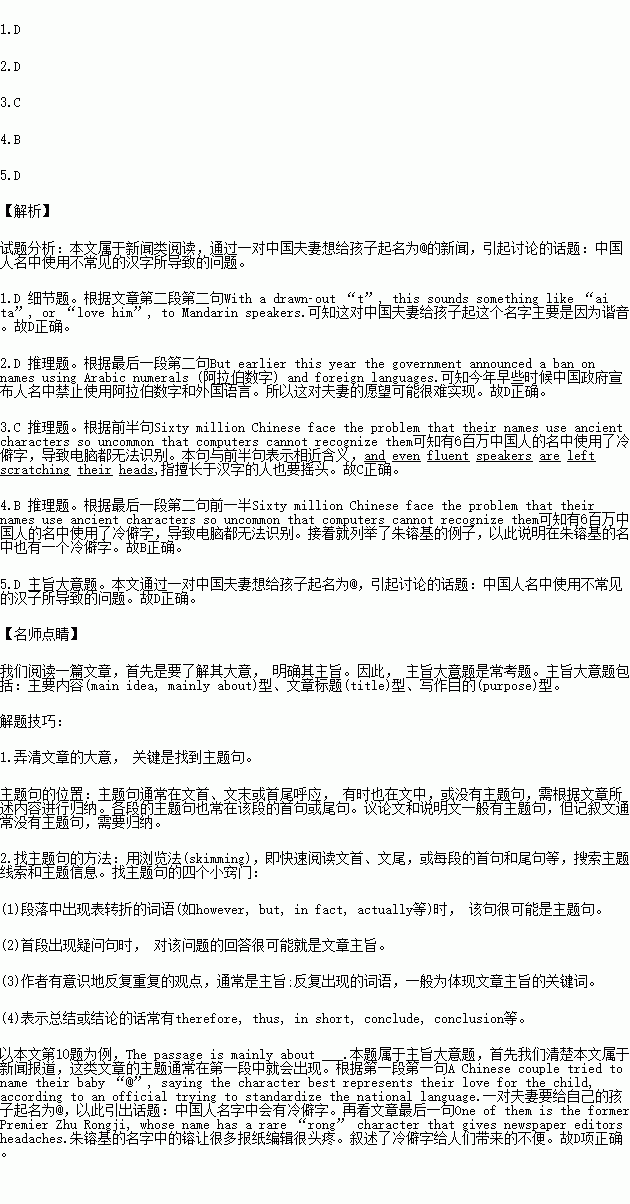题目内容
A Chinese couple tried to name their baby “@”, saying the character best represents their love for the child, according to an official trying to standardize the national language. The unusual name stands out especially in Mandarin, which has no alphabet (字母表) and instead uses tens of thousands of multi?stroke (多笔画的) characters to represent words. “The whole world uses it to write emails, and translated into Chinese it means ‘love him’,” the father explained, according to the deputy chief of the State Language Commission Li Yuming.
While the @ symbol is familiar to Chinese email users, they often use the English word “at” to sound it out. With a drawn?out “t”, this sounds something like “ai ta”, or “love him”, to Mandarin speakers. Li says the name is an extreme example of people’s increasingly adventurous approach to Mandarin, as commercialization and the Internet break down conventions (习俗).
Another couple tried to give their child a name that in English sounds like “King Osrina”.
Li did not say if officials accepted the “@” name. But earlier this year the government announced a ban on names using Arabic numerals (阿拉伯数字) and foreign languages. Sixty million Chinese face the problem that their names use ancient characters so uncommon that computers cannot recognize them and even fluent speakers are left scratching their heads, said Li, according to a report on the government website. One of them is the former Premier Zhu Rongji, whose name has a rare “rong” character that gives newspaper editors headaches.
1.Why did the Chinese couple try to name their baby “@”?
A. Because they wanted their baby to have a special name.
B. Because they wanted their baby to have an international name.
C. Because the @ symbol is familiar to email users all over the world.
D. Because the @ symbol sounds something like “ai ta”, which means “love him” in Chinese.
2.It can be inferred that ___________.
A. Li Yuming is in favor of the baby’s name
B. many Chinese people use Arabic numerals in their names
C. a majority of the Chinese people are having longer names
D. there is little possibility for the “@” name to be officially accepted
3.The underlined part in the passage probably means___________.
A. even native speakers find it hard to accept these strange names
B. even native speakers can’t find these characters in their computers
C. even those who are expert at Chinese can’t recognize these characters
D. even those who are expert at Chinese find it hard to accept these names
4.The former Premier Zhu Rongji is mentioned in the passage because ________.
A. people often mispronounce his name
B. there is an uncommon character in his name
C. he often made newspaper editors annoyed during his term in office
D. he once stressed the importance of standardizing Chinese characters
5.The passage is mainly about ___________.
A. how Chinese parents name their babies
B. the importance of standardizing Chinese characters
C. a ban on names using Arabic numerals and foreign languages
D. the problems caused by uncommon characters used in Chinese names
 能考试期末冲刺卷系列答案
能考试期末冲刺卷系列答案
